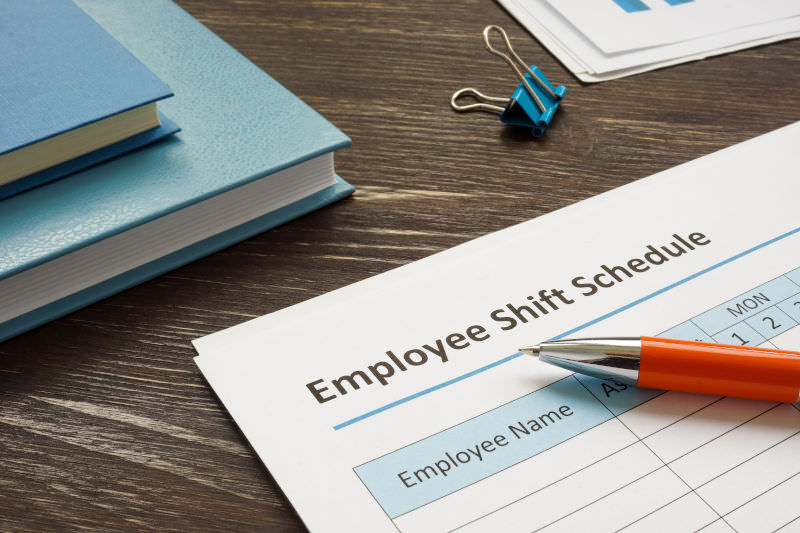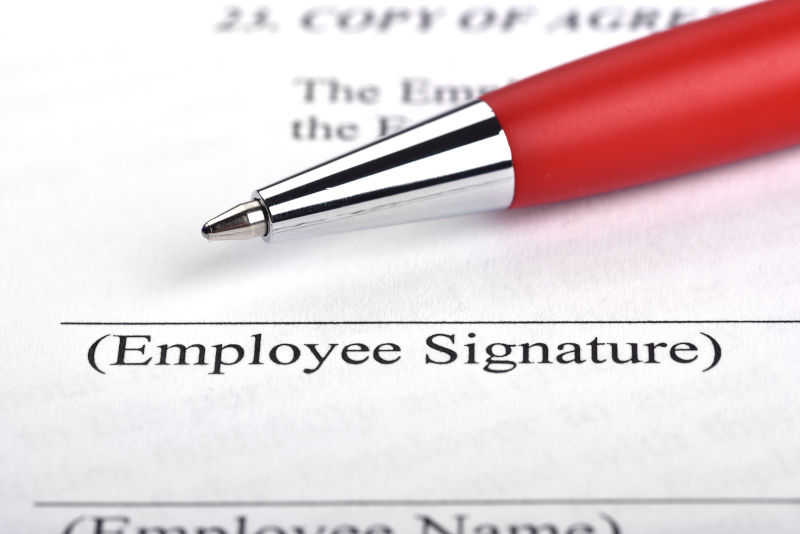ACAS Early Conciliation is an important step in many employment disputes. It is a process by which you and your employer (or previous employer) can try to come to an early agreement concerning your dispute, without having to take your case to an Employment Tribunal.
Early Conciliation is voluntary, so both sides must agree to engage with it for it to take place. If one or both sides do not agree to Early Conciliation, the matter can continue to the Employment Tribunal to be resolved.
However, in most situations, you must contact ACAS about your dispute – even if you do not wish to use Early Conciliation and you ultimately want to take the matter to an Employment Tribunal. This requirement will cover the vast majority of employment disputes, and can include:
We’ll explain how to meet this contact requirement when we look at the ACAS Early Conciliation process (below).
Who is ACAS?
ACAS stands for the Advisory, Conciliation and Arbitration Service. They are an independent organisation, funded by the government, which aims to assist employees and employers in workplace disputes. Their services are free, impartial, and confidential.
In Early Conciliation, ACAS will appoint conciliators to talk to both sides of a dispute and try to help the parties reach an agreement. The conciliator will act as a ‘go-between’, hearing both parties’ points of view and relaying them across.
Anything which you say (or otherwise communicate) to the conciliator during the course of their service will not be admissible in evidence in any subsequent Tribunal proceedings, unless you give your consent to allow it. These rules will apply equally to your employer.
How can ACAS Early Conciliation help me?
There are many benefits to using ACAS Early Conciliation. The main ones are:
- Speed – It is usually quicker to resolve your dispute through conciliation than by pursuing a claim through the Employment Tribunal. Claims going through the Tribunal process are at the mercy of the Tribunal’s timetable, which often involves delays.
- Early Conciliation is free – The services of an ACAS conciliation officer are free, so there will be no cost to you for entering into Early Conciliation (other than the fees of any legal representatives you may have instructed).
- Involvement of a neutral party – Tensions can often run high in employment disputes. ACAS Early Conciliation can help to remove this as a factor, as communication between you and your employer will be conducted through a neutral conciliator.
- Less formality – The Early Conciliation process is much less formal than that of the Employment Tribunal, and attending a Tribunal hearing can be stressful. Resolving your dispute before having to involve the Employment Tribunal may save you some of this worry.
What happens in ACAS Early Conciliation?
The following should give you an idea of what to expect in ACAS Early Conciliation. It assumes you are intending to make a claim regarding an employment matter against an employer or former employer (for ease, we’ll refer to them as ‘your employer’).
Step 1: Submitting the Early Conciliation Form
The first step is to complete and submit an Early Conciliation form (referred to as the ‘EC form’). The EC form can be submitted online through ACAS or by post. Alternatively, you can telephone ACAS who will complete the EC form for you, using the details you give them.
You can either submit the EC form yourself or, if you have instructed legal representatives, you can ask them to do this for you. Your lawyer should require a signed form of authority from you to enable them to submit this on your behalf. If you are represented, you can still complete the form yourself if you wish and you can provide your representatives’ details on the form.
After submitting the EC form you or your lawyer will receive a receipt for this by email or post.
Step 2: Deciding whether to use ACAS Early Conciliation
ACAS will then send you or your lawyer a number on which to contact them. Upon calling this number, ACAS will give you some information about the Early Conciliation process, take some details about your complaint, and ask whether you wish to participate in Early Conciliation. If you have legal representatives, you can instruct them to call ACAS and relay your decision instead.
Choosing not to participate with Early Conciliation
If you do not wish to participate in the Early Conciliation process, ACAS will send you an EC certificate to show that you have complied with your obligation to contact them. This certificate is necessary for taking your claim to the Employment Tribunal. The Early Conciliation process will end here.
Choosing to participate
However, if you confirm that you wish to participate in the Early Conciliation process, the matter will be passed to an ACAS conciliator, who will take further details from you (or your representatives) of the issues in your dispute. Their next step will be to contact your employer. However, they will ensure that you consent to this before doing so.
Step 3: Your employer’s response
Provided you consent, the ACAS conciliator will try to contact your employer. If your employer confirms that they also wish to participate in Early Conciliation, the process will continue.
However, if the ACAS conciliator is unable to make contact with your employer – or your employer indicates they do not wish to participate in the process – the process will end and ACAS will issue an EC certificate. As noted above, this will allow you to present your claim to the Employment Tribunal.
Step 4: Conciliation
If both sides have confirmed they are willing to participate in Early Conciliation, the ACAS conciliator will then discuss the issues with you and your employer individually. The ACAS conciliator essentially acts as an independent messenger between the parties, but the goal is to achieve a settlement and resolve the dispute. The conciliation process will go on for up to 6 weeks – a time span which is referred to as the Early Conciliation Period.
Step 5: Outcome
Several outcomes are possible as a result of Early Conciliation:
The parties agree a settlement
If both sides manage to reach a settlement, this will be made into a legally binding agreement between you and your employer. The agreement will be set out in a form known as a ‘COT3’. This form can be drafted by your ACAS conciliation officer. In practice, however, the initial draft of the COT3 is usually sent by any lawyers acting for your employer or, where your employer does not have legal representation, by your lawyers.
It is important that you seek legal advice before agreeing to a COT3 as, once you agree to it, you will have to keep to it (even if neither side has signed the COT3 yet). A COT3 becomes legally binding when:
- Both parties have confirmed to the ACAS conciliator that they agree with the terms; and
- The conciliator has confirmed to the parties that the terms of the COT3 are legally binding.
As you can see, for the COT3 to become legally binding, it does not matter whether it has been signed or not.
When a settlement is reached, it is usual for the terms of the agreement to be kept confidential.
If all issues in the case have been settled, it will probably not be necessary for ACAS to issue an EC certificate. These are only needed if there are unresolved matters in the case which require the Employment Tribunal’s involvement.
Settlement is not considered possible
The ACAS conciliator may conclude that settlement of all or part of the issues in the dispute will not be possible in the Early Conciliation Period. In this situation, ACAS will issue an EC certificate and Early Conciliation will end.
Settlement is not reached before the end of the Early Conciliation Period
The Early Conciliation Period can last for a maximum of 6 weeks. If an agreement has not been reached within this time, ACAS will send you an EC certificate and Early Conciliation will end.
How does ACAS Early Conciliation affect the time limits for my case?
Employment Tribunal cases have very strict time limits. If you do not begin your claim within these time limits, it can prevent you from claiming. So it is important to know what the relevant deadline will be in your case, and how ACAS Early Conciliation can affect it.
The time limit on Employment Tribunal cases
The time limit to take your claim to an Employment Tribunal is normally 3 months, less one day. So for example, if your employment was terminated on 20th August 2021 then the time limit to pursue a claim for unfair dismissal will expire on 19th November 2021. This deadline is sometimes called the case’s ‘limitation date’.
The Early Conciliation Period
As mentioned above, the Early Conciliation Period can last up to 6 weeks. The good news is that Early Conciliation essentially ‘stops the clock’ on your limitation date, so that the time spent in Early Conciliation will not count towards the 3-month time limit. The downside is that this can make working out the correct limitation date for your claim a bit more difficult.
Working out the length of your Early Conciliation Period
If Early Conciliation does not resolve all of the issues in your dispute, ACAS will issue an EC certificate. Because this can happen at any point during the Early Conciliation Period, it means, in many cases, the Period will not be the full 6-week maximum.
The EC certificate will provide relevant information for working out how long the Early Conciliation Period lasted in your case.
You will need to identify two dates which mark the start and end of the Early Conciliation Period: known as ‘Day A’ and ‘Day B’ respectively. These are as follows:
- DAY A: is the day on which ACAS received your initial EC form (as described in Step 1 of the Early Conciliation process, above). Alternatively, if you telephoned ACAS to complete the EC form for you, it will be the day when this took place.
- DAY B: is the day on which you received the EC certificate from ACAS. If this was sent to you by post rather than by email, Day B will still be the day upon which you received it (i.e. the day it was delivered).
The length of the Early Conciliation period is then calculated by counting the number of days between Day A and Day B. Day A itself is not included in this number.
When you have the length of your Early Conciliation Period, it needs to be applied to the 3-month time limit to get the new limitation date for your case.
Working out your new limitation date
In most cases, the 3-month time limit will already be running when a person begins ACAS Early Conciliation. In other words, a person looking to claim for unfair dismissal will already have had their employment terminated, for example.
If this is true in your case, then your new limitation date can be found by adding the length of your Early Conciliation Period (calculated in the previous section) to your initial limitation date.
For example:
Your employment was terminated on 20th August 2021 and you want to claim for unfair dismissal. Your initial limitation date is therefore 19th November 2021 (3 months less one day from the date of your termination).You contact ACAS for Early Conciliation on 20th September 2021 (Day A). ACAS Early Conciliation then lasts for 3 weeks before you receive your EC certificate on 11th October 2021 (Day B).This means your Early Conciliation Period is 21 days (not including Day A itself). Adding 21 days to the initial limitation date therefore means your new limitation date is 10th December 2021. You will have to bring your unfair dismissal claim in the Employment Tribunal by this date.
Where ACAS Early Conciliation starts before your limitation period begins
The calculation is a bit more complicated if you have started ACAS Early Conciliation before your 3-month time limit has started to run. To give an example of how this might happen: you might receive advance notice of your termination date and contact ACAS about unfair dismissal before your termination takes place.
In these situations, your ordinary limitation period will only be extended by the portion of the Early Conciliation Period which falls within the limitation period.
An example is the best way to illustrate this:
You are given notice on 6th August 2021 that your employment will be terminated on 20th August 2021 and you wish to make an unfair dismissal claim concerning it. Your limitation period for such a claim would start to run from 20th August 2021, meaning your initial limitation date will be 19th November 2021.You contact ACAS to begin Early Conciliation on 13th August 2021 (Day A). ACAS Early Conciliation then lasts for 3 weeks before you receive your EC certificate on 3rd September 2021 (Day B).Therefore, your Early Conciliation Period will be 21 days (not including Day A itself).
However, your limitation period will not be extended by all 21 days, because only the days after the limitation period begins to run will be counted. As the limitation period began on 20th August 2021 (i.e. 7 days into the Early Conciliation Period), it means the limitation period will only be extended by 14 days.
Adding 14 days on to the initial limitation date of 19th November 2021, therefore gives a new limitation date of 3rd December 2021.
A warning about limitation and Early Conciliation
Early Conciliation cannot grant you extra time to make an Employment Tribunal claim if your limitation deadline has already expired. If you have missed the limitation date for your claim, it usually means you will be unable to make the claim. Early Conciliation cannot help in this situation. However, it may still be worth discussing the matter with a solicitor, in cases with exceptional circumstances you may be granted permission to make a claim out of time.
Truth Legal and ACAS Early Conciliation
At Truth Legal we have a great deal of experience in helping clients with the ACAS Early Conciliation process. And legal advice from specialist employment solicitors at an early stage of a dispute can maximise your prospects of success. In most cases, we can represent you under a No Win, No Fee agreement or a fixed fee.
If you would like expert advice on ACAS Early Conciliation or an employment dispute, please contact us.
Further Reading
From one of the UK’s most read legal blogs.











